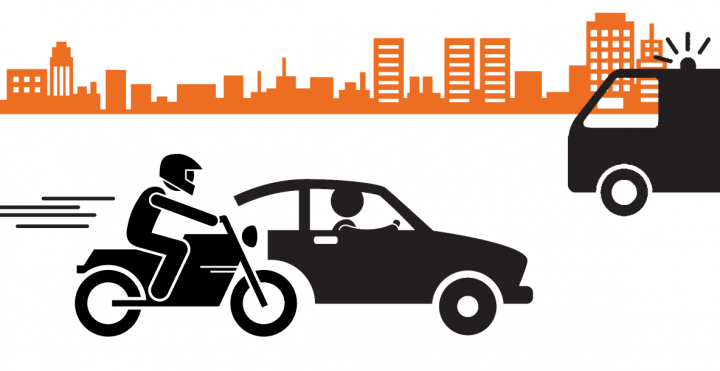Zero tolerance on drink driving, additional hazard perception training and graduated forms of licensing should become the norm to help tackle the disproportionate risks faced by young drivers and motorcycle riders in Europe, according to the YEARS report (Young Europeans Acting for Road Safety), launched today (26 January 2017).
Full report, Reducing casualties involving young drivers and riders, is available here: YEARS Policy Report
More than 3,800 young people (aged 18-24) were killed on EU roads in 2013 – the biggest single cause of death for this age group. According to the report by the European Transport Safety Council (ETSC) and the UK Parliamentary Advisory Council for Transport Safety (PACTS), young people continue to face a unique combination of factors that leads to a higher rate of collisions and deaths.
Young riders are particularly at risk, with deaths for moped riders peaking between the ages of 15 and 17 and for motorcycle riders between 18 and 24.
Biological and social changes between the ages of 15-25 affect the risk perception of young people, according to the report. A lack of experience on the road also means that they are worse at anticipating and reacting to hazards, and less aware of how best to drive and ride in particular road conditions and situations.
A range of impairments and distractions affect young people, linked to increased social activity, greater exposure to alcohol and drugs, the influence of peer-age passengers and the effects of fatigue. In-car distraction from mobile devices is also a problem. Young people tend to drive smaller and older vehicles. These cars often have a lower crashworthiness star rating, and lack the safety technologies featured in newer models. The use of seat belts and protective clothing is also poor amongst young people.
The UK has a good overall road safety record but as in many other European countries, young motorcyclists and drivers form a disproportionately high percentage of deaths.
Most other countries in Europe do not allow young people to drive unsupervised until they are 18. They also have longer periods between beginning to learn to drive and driving solo, which allows young people to build up more driving experience before taking their test. In the UK the minimum age for independent driving is 17.
However, the UK has also been leading the way when it comes to hazard perception testing and telematics based insurance for young drivers.
The report makes a number of key recommendations for urgent action including:
- Better enforcement of speed and drink-drive limits, seat belt wearing and mobile phone use: this particularly benefits young road users;
- Encouraging more accompanied driving to help young people gain experience;
- Adopting licensing systems that encourage young people to gain more experience while limiting certain high-risk activities such as driving at night and with passengers;
- Lowering the alcohol limit for young drivers;
- A greater focus on safety initiatives for young riders; and
- Enabling and encouraging young people to use safer cars.
Commenting on the report, David Davies, Executive Director of the Parliamentary Advisory Council for Transport Safety said: “The scale of death and injury involving young drivers and riders is a tragedy. They continue to make up a disproportionate number of road casualties – in the UK and across Europe. We need policymakers to commit to introducing proven measures that can help reduce this risk.
“The UK has led the way in Europe in aspects of improving the safety of young road users, including hazard perception testing and telematics-based insurance. PACTS welcomes the current proposals by the Government and DVSA to change the driving test and improve motorcycle training.
“More however, could and should be done. This is particularly important as the UK is one of the few countries in Europe where 17 is the driving test age. We need to find ways to encourage young drivers to use safer cars, and to get more experience and hazard perception training before taking the test. We can also learn from our others countries which have lower drink-drive limits for novice drivers and ways to encourage or require drivers to get more experience before taking the test.
“Traffic law enforcement of speed, seat-belt wearing, mobile phone use and drink/drug driving are particularly important to the safety of young road users. The reduction in police enforcement is very worrying.”
The YEARS project receives financial support from the European Commission, the German Road Safety Council |DVR) and the Belgian Road Safety Institute.
Report available:
http://etsc.eu/reducing-casualties-involving-young-drivers-and-riders-in-europe/
http://etsc.eu/wp-content/uploads/2017_01_26_young_drivers_report.pdf
Ends
About PACTS
The Parliamentary Advisory Council for Transport Safety (PACTS) is a registered charity. It supports the All-Party Parliamentary Group for Transport Safety. See https://www.pacts.org.uk/
Further media information:
Hadstrong Becky Hadley 020 7808 7997
PACTS David Davies 020 7222 7732

